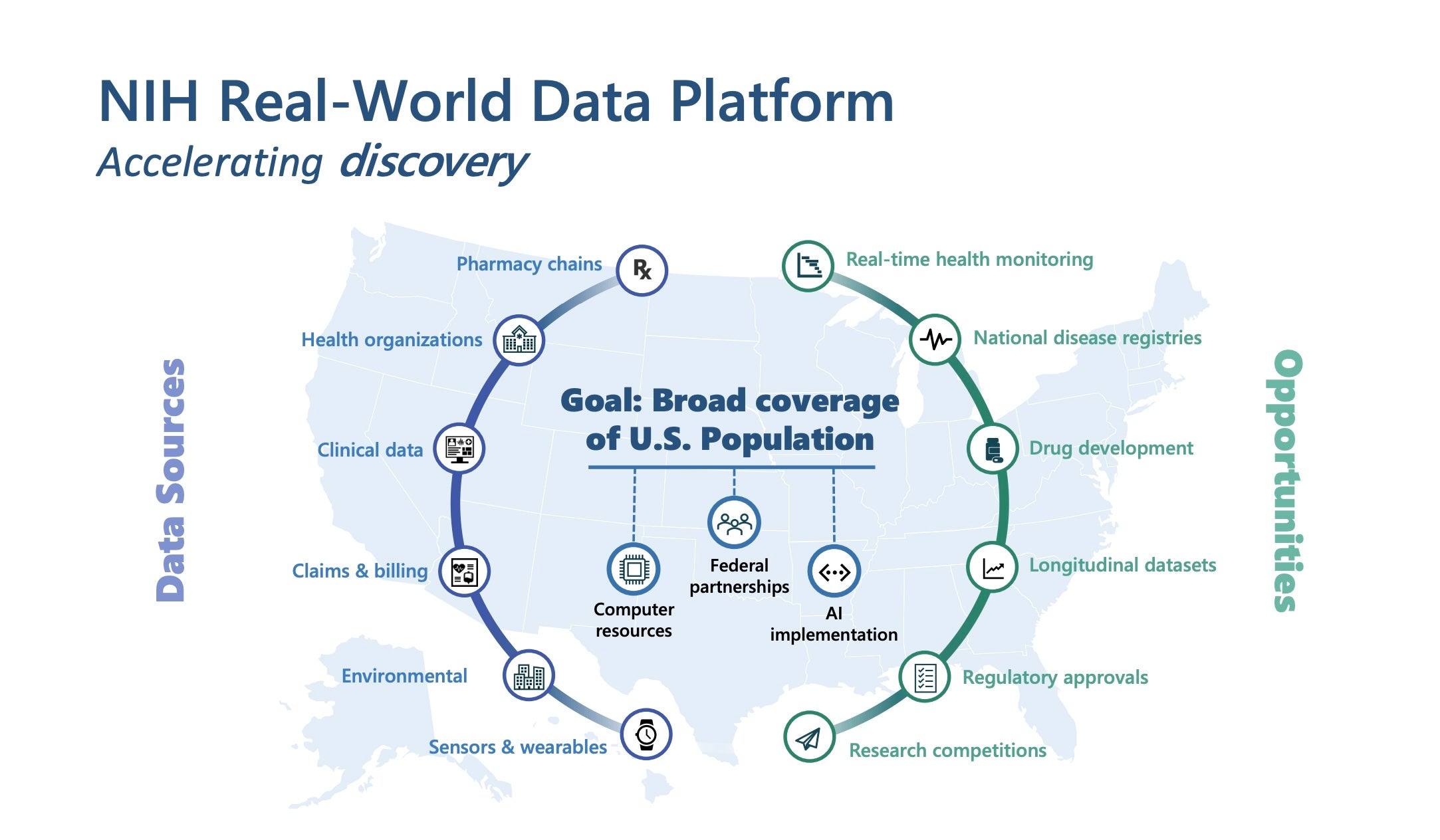The National Institutes of Health is gathering private medical records from federal and commercial databases to utilize in its renewed study of autism spectrum disorder.
The intention is to provide researchers with a more “comprehensive” view of the U.S. population and the role of autism, NIH Director Dr. Jay Bhattacharya said during a Tuesday meeting of the agency’s top advisers. The actions come amid the Trump administration’s renewed focus on autism in its quest to “Make America Healthy Again.”
“The idea of the platform is that the existing data resources are often fragmented and difficult to obtain. The NIH itself will often pay multiple times for the same data resource,” he said. “Even data resources that are within the federal government are difficult to obtain.”
While it remains unclear exactly what data will be collected, under the presented platform NIH researchers could have access to:
- Americans’ prescription information, including the type of medication and how they are prescribed
- Data collected during medical studies in a multitude of areas and from public and private institutions
- Data collected from peoples’ smartwatches, which can range from heart health to sleep patterns
- Claims from private insurers that can cover items such as lengthy hospital stays, screening and testing
- Data from the Centers for Medicare and Medicaid Services, which includes referrals to specialists, enrollment, diagnoses, and more
Bhattacharya said the NIH’s Real-World Data Platform would utilize health organization, pharmacy chain, sensor and wearable, environmental, clinical, and claims and billing data. Notably, a similar National Institute on Aging project to gather “real-world” data related to Alzheimer’s disease was shelved last year.
The result, he claimed, would be real-time health monitoring, regulatory approvals, drug development, the improvement of national disease registries, and more. Although, Bhattacharya added that there will be “state of the art protections” to safeguard confidentiality.

The NIH is also talking with the Centers for Medicare and Medicaid Services to broaden agreements governing access to their data, he said. About 67 million people are enrolled in Medicare, while another 79 million are under Medicaid.
A request for comment from the NIH was not immediately returned.
A new disease registry to track Americans with autism will reportedly be incorporated, according to CBS News. The NIH had previously launched the National Database for Autism Research.
“What we’re proposing is a transformative real-world data initiative, which aims to provide a robust and secure computational data platform for chronic disease and autism research,” the director said.

The push to re-examine autism is led by Department of Health and Human Services Sec. Robert F. Kennedy, Jr., who has insisted that the developmental disorder is worse than Covid and called the rising prevalence of autism in children an “epidemic” without acknowledging the impact of improved diagnostic tools.
Kennedy, who claimed autism “destroys families,” had pledged to find out the cause of autism by September.
“These are kids who will never pay taxes. They’ll never hold a job. They’ll never play baseball. They’ll never write a poem. They’ll never go out on a date,” Kennedy said of people with autism. “Many of them will never use a toilet unassisted. And we have to recognize we are doing this to our children, and we need to put an end to it.”
Researchers and autism groups say the science they are calling into question with renewed study has been settled.
“Claims that Autism is ‘preventable’ are not supported by scientific consensus and perpetuate stigma. Language framing Autism as a ‘chronic disease,’ a ‘childhood disease’ or ‘epidemic’ distorts public understanding and undermines respect for Autistic people,” Autism Speaks and other groups said in a joint statement.




